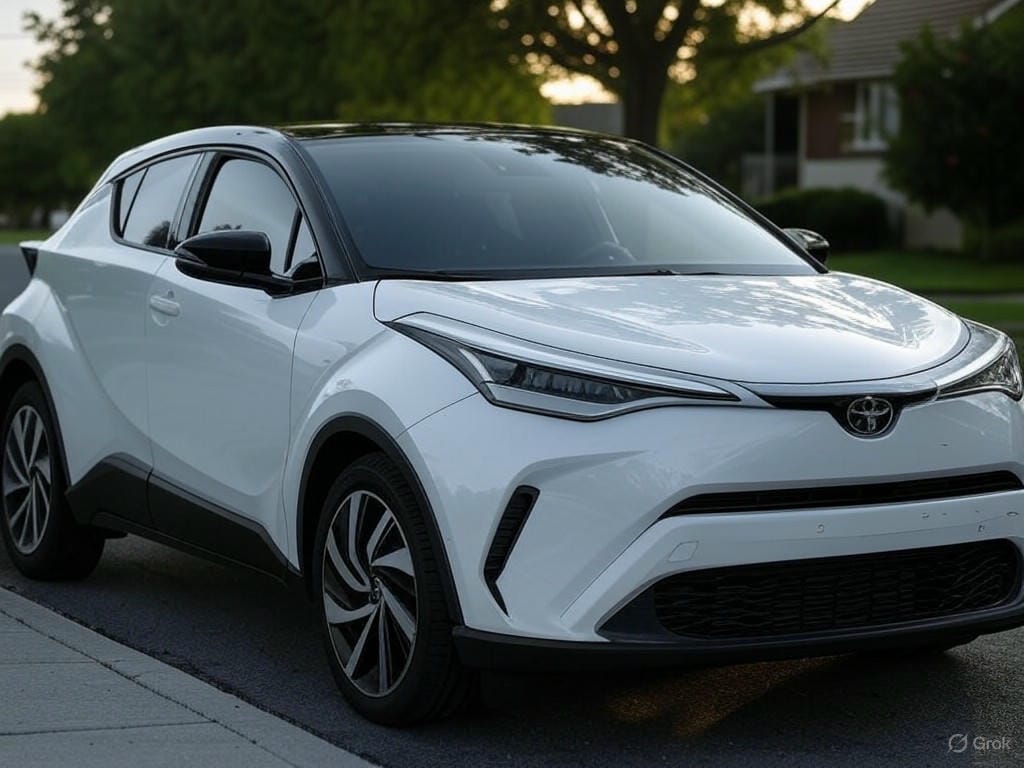2026 Toyota C-HR EV: Should You Wait or Buy Now? Full Specs, Features, and Comparison
As the electric vehicle (EV) market continues to expand, compact electric SUVs are becoming a hot choice for eco-conscious drivers seeking style, performance, and practicality. Among the most anticipated releases is the 2026 Toyota C-HR EV, a bold reimagining of Toyota’s quirky subcompact crossover. With its futuristic design, impressive performance stats, and Toyota’s renowned reliability, this electric SUV is generating significant buzz. But the question remains: should you wait for this game-changer or opt for a currently available EV? In this comprehensive guide, we’ll dive into the details of the 2026 Toyota C-HR EV, compare it to competitors, and help you decide whether to hold off or buy now.
What Makes the 2026 Toyota C-HR EV Stand Out?
Toyota is making a strong statement with the 2026 C-HR EV, marking its return to the U.S. market after discontinuing the first-generation gas-powered C-HR. This isn’t just a mild refresh; it’s a complete transformation into a fully electric vehicle (BEV) packed with cutting-edge technology and performance-driven features. Here’s why the C-HR EV is worth the hype:
- Sleek, Futuristic Design: The C-HR EV boasts a coupe-like silhouette that blends sportiness with sophistication, setting it apart from the boxy designs of many compact SUVs.
- Electrifying Performance: Equipped with a dual-motor all-wheel-drive (AWD) powertrain, the C-HR EV delivers an impressive 338 horsepower. Toyota estimates a 0-60 mph time of around 5 seconds, a dramatic leap from the sluggish 10.1 seconds of the old gas model.
- Competitive Range: Powered by a 74.7 kWh battery, the C-HR EV offers an estimated range of up to 290 miles, making it suitable for both urban commutes and longer road trips.
- Advanced Technology: Expect a fully digital interior with a heads-up display (HUD), ultra-fast DC charging capabilities, and NACS (North American Charging Standard) compatibility for seamless charging experiences.
- Standard AWD: With electric motors in both front and rear eAxles, the C-HR EV ensures superior traction and handling in various driving conditions.
This model represents Toyota’s serious push into the compact EV SUV segment, combining bold styling with performance that could rival even sporty gas-powered vehicles. For first-time EV buyers, Toyota’s reputation for durability and reliability adds an extra layer of confidence.
How Does the 2026 Toyota C-HR EV Compare to Current Compact EVs?
Before deciding whether to wait for the C-HR EV, it’s worth comparing it to some of the top compact electric SUVs currently on the market. Here’s a detailed breakdown:
| Model | Range (miles) | 0-60 mph (seconds) | Starting Price |
|---|---|---|---|
| Toyota C-HR EV (2026) | 290 (est.) | 5.0 (est.) | ~$40,000 (est.) |
| Hyundai Kona Electric | 261 | 6.4 | $37,000 |
| Chevy Equinox EV | 319 | 6.0 | $34,995 |
| Volvo EX30 | 275 | 5.1 | $36,000 |
The 2026 Toyota C-HR EV stands out with its superior acceleration and balanced range, positioning it as a strong contender. While the Chevy Equinox EV offers a slightly longer range and a lower starting price, the C-HR EV’s performance and AWD capabilities could appeal to drivers prioritizing speed and handling. Additionally, Toyota’s brand reliability might tip the scales for cautious buyers hesitant about newer EV manufacturers.
Should You Wait for the 2026 Toyota C-HR EV?
Deciding whether to wait for the C-HR EV or purchase an EV now depends on your personal needs and circumstances. Here are some factors to consider:
Reasons to Wait for the C-HR EV:
- Cutting-Edge Features: If you’re excited about the latest automotive technology, the C-HR EV promises advanced digital interfaces and fast-charging capabilities.
- Performance and Design: With its muscle-car-like acceleration and striking design, this EV is ideal for those who value style and speed.
- No Urgent Need: If your current vehicle is still reliable and you’re not in a rush to switch to electric, waiting could reward you with a standout model.
Reasons to Buy an EV Now:
- Immediate Need: If your current car is aging, inefficient, or costly to maintain, waiting might not be practical.
- EV Incentives: Some tax credits or rebates for EVs may have expiration dates or limited availability, so purchasing now could save you money.
- Proven Options: Current models like the Chevy Equinox EV or Hyundai Kona Electric have real-world performance data and user reviews, reducing the uncertainty of a new release.
Final Thoughts on the 2026 Toyota C-HR EV
The 2026 Toyota C-HR EV is shaping up to be a game-changer in the compact electric SUV market. With its powerful 338-horsepower dual-motor setup, estimated 290-mile range, and head-turning design, it offers a compelling blend of performance and practicality. For eco-conscious drivers or those looking to transition to electric with a trusted brand like Toyota, this model could be the perfect fit. However, if you need a vehicle sooner or prefer a proven option with immediate incentives, exploring current EVs might be the better choice. Stay tuned for more updates on pricing and exact release details as Toyota continues to unveil more about this exciting electric crossover.

Leave a Reply